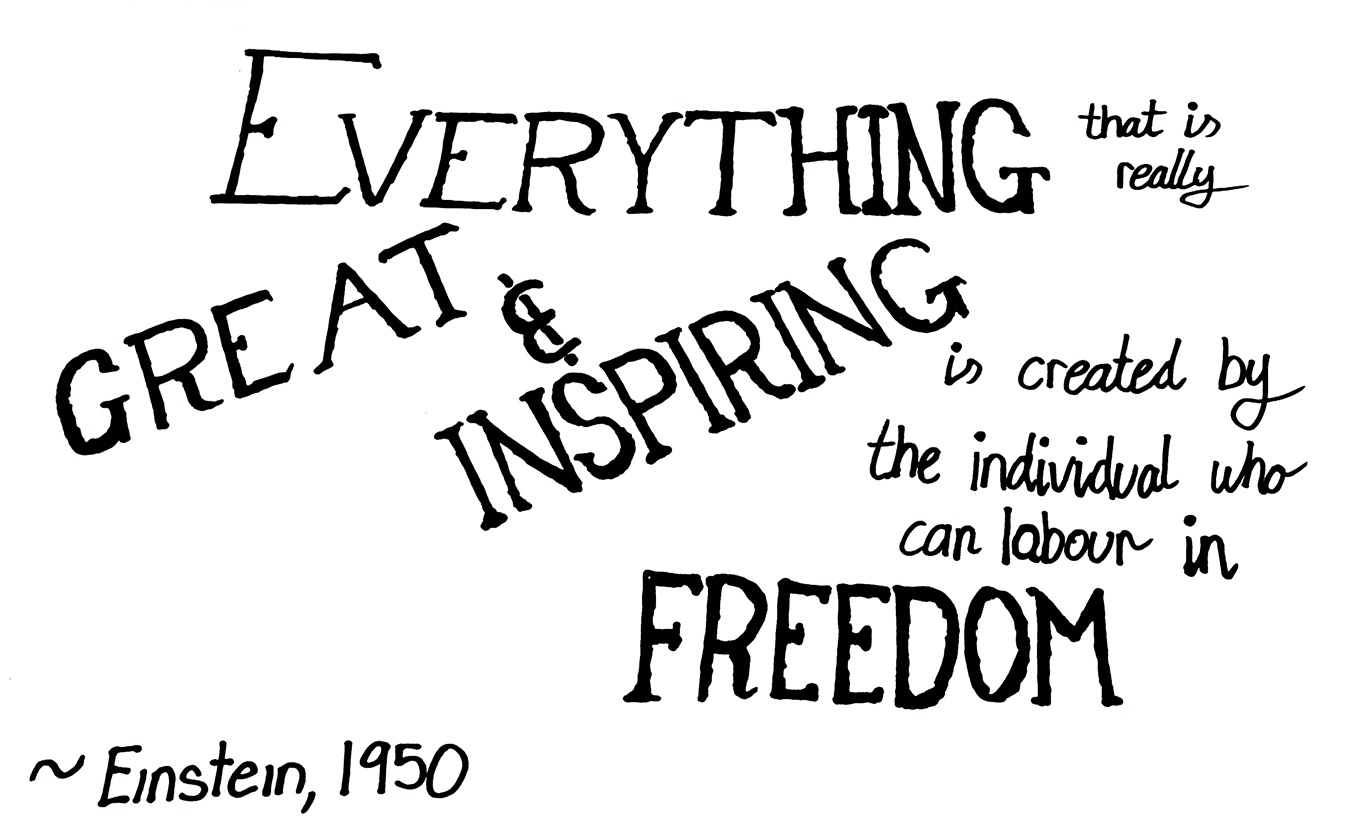on Inspiration over Imposition
Everything that is really great & inspriing is created by the individual who can labor in freedom.

If you read my last article, you will see that I believe that both top-down and bottom-up change is a fundamentally flawed metaphor. Organisation change only occurs through an infusion of new ideas, new cultures, and new structures brought about by active change agents in every part of the organisation. It requires leaders with an agile mindset and a desire to see change, it requires do’ers to be willing and able to push beyond their job description; it requires enabling functions to see their role in the bigger system; and it requires managers to collaborate with other divisions to help them become successful.
As should be evident by this point, organisational change is hard. There’s no single approach that works for every organisation. However, looking at transformation failure rates, we can confidently state that there are clear ways NOT to run a transformation. Most egregious, imposing a new set of values and practices via a transformation on an unwilling or unprepared workforce. This is at best ineffective and at worst unethical. Prima facie, by treating an organisational change as a series of imposed process and practice changes, leaders get a simpler and more “predictable” result. It doesn’t work.
Which brings us to the title of this article: Inspiration over Imposition.
Ideally, once a company has made a decision to begin a journey towards business agility, the leadership team must commit and maintain a transparency of purpose. This includes disclosing the intentions of agile teams, their final objectives, the processes they will take to reach those objectives, and any figures and measures relevant to the teams in question.
As a rollout of agile values and practices continues, management should invite participation from the workforce. There are many strategies that a management team can implement to win the hearts and minds of employees, many of which revolve around core principles of fostering understanding and conviction, reinforcing change through formal mechanisms, developing talent and skills, and modeling the new roles.
This tightly aligns with the changes discussed in the People Management Domain in the Domains of Business Agility. Delegation becomes the art of delegating outcomes, rather than actions, and always in service of the customer. Each employee is accountable for their actions and the impact on the customer. It is the role of management to set and communicate vision, goals, and measurements while supporting their teams wherever possible. It is not their role to tell the teams how to do their work or impose new systems of working on them.
In other words, when a leader delegates an outcome, they should step back and watch their teams step up.
As a short aside, inviting change is not a guarantee of organisation change; it is ultimately a personal choice of each employee. This means understanding what motivates people. A good model of motivation is Professor Steven Reiss’ 16 Basic Desires Theory. Based on initial studies involving more than 6,000 people, Professor Steven Reiss proposed that nearly all human motivation can be individually modeled along a spectrum of 16 basic desires. Leaders need to develop approaches that inspire them in a positive way and tailor invitations that best align to an individual team member’s motivation.
If management engages in these processes genuinely and openly, they will retain the trust and commitment of their workforce throughout the agile transformation. If not, they will alienate their employees and deepen the chasm between management and the workforce. We explore this concept in more detail in our, soon to be released, research paper on Business Agility in Unionised Workforces.
At the end of the day, we spend the majority of our waking life at work, thinking about work, checking work emails, and . . . you get the idea. We spend more time working than we do with our family. This isn’t a value judgement, merely a statement of fact. This means that our work should be engaging, valuable, and enriching. If it’s the majority of our life, it should also be the best part of our life. And working at a company that respects that fact by providing each of us with autonomy to work towards a clear and sincere purpose is a pretty good start.
-Evan Leybourn, 7th December, 2019